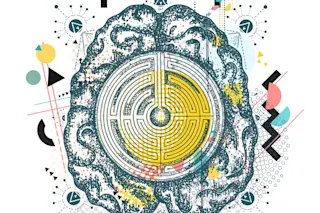In ancient times, people referred to the ringing in their ears as buzzing, whispering or even singing. Today, we call it tinnitus.
Despite being a common medical disorder, tinnitus continues to challenge medical professionals, affecting 5 to 15 percent of the population and significantly impacting their quality of life. Explore the causes, symptoms and current treatment approaches of tinnitus.
Tinnitus is a medical condition marked by the perception of sound within the ears, even in the absence of any external sound. Normally, we hear sounds only when they make our eardrums vibrate. The vibrations cause nerve hairs in the inner ear to shiver, and that triggers electric signals that travel along the auditory nerve into the brain.
One of their first stops is a patch of gray matter called the auditory cortex. Each nerve hair is tuned to a particular frequency of sound and excites only certain neurons in the ...














